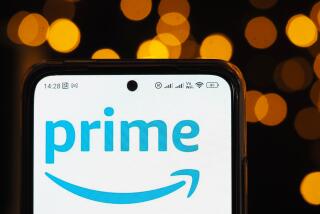AOL in Deals to Offer Wireless Web Access
Signaling that the next great battlefield for the communications customer will be the mobile telephone, several leading Internet companies on Monday announced deals to provide services to wireless users over a new generation of portable devices.
Among others, America Online announced partnerships with Sprint PCS and the phone manufacturers Motorola and Nokia to bring its service to wireless subscribers; the Internet service provider EarthLink announced its own deal to provide Internet access to Sprint PCS subscribers; and Microsoft’s MSN Internet Service announced a partnership with Qualcomm to jointly develop a line of “smart phones,” as well as deals with AirTouch and other phone carriers to transmit MSN e-mail and other services to their portable phone customers.
The timing of most of the deals was unclear, although Sprint PCS said it hopes to have its AOL service available to customers within 90 days.
“AOL, MSN, and Yahoo are already battling for the mobile customer,” said Josh Bernoff, an industry analyst for Forrester Communications, a Boston consulting firm. “That’s true even though the number of users that can access [the information] today is close to nil.”
The deals were among several timed to coincide with the annual Cellular Telecommunications Industry Assn. trade show, which opened Monday in New Orleans. Taken together, they underscore the Internet industry’s recognition that delivering data to owners of mobile phones stands to become a lucrative business over the next few years.
“It’s amazing to see people like Bill Gates and Steve Case here,” said Mark Lowenstein, global wireless analyst for the Yankee Group, referring to the chairmen of Microsoft and AOL. “You couldn’t drag these guys to this meeting two years ago.”
Surveys project that there will be more than 1 billion mobile phones in use worldwide by 2003, with more than half capable of accessing data via the Internet. That has set off a land rush among Web companies vying to deliver e-mail, stock quotes, localized maps and entertainment information to wireless devices.
The key debate is whether users will want to replicate their home Web-surfing experience on the road--a service that will mean costly and elaborate mobile devices--or will want to receive stripped-down data, such as e-mail, on pocket-size devices.
“There’s one view that this is about moving the home [Internet] environment into the wireless space,” said Dennis Patrick, the former Federal Communications Commission chairman who was recently named president of AOL Wireless. “But we probably haven’t even begun to think about all the applications that will only exist on wireless.”
For Internet service providers such as AOL, MSN, and EarthLink, partnerships with wireless service carriers are crucial to ensuring that they can reach their subscribers via any technological device. AOL’s “AOL anywhere” strategy, for example, means its service must be available over telephone lines, cable TV networks, wireless systems and any other networks that emerge.
For now, that means making deals with the wireless phone companies, which monopolize the customer relationship with their subscribers. AOL’s partnership with Sprint, for example, guarantees AOL a spot on the graphical display on most Sprint PCS phones, allowing its subscribers to access its service with the press of a button. But it must share that window with Yahoo, EarthLink, and Amazon.com, all of which also have nonexclusive deals with the phone company.
From Sprint’s standpoint, the partnerships are valuable now because they are likely to bring in new customers--including AOL’s estimated 22 million subscribers--and increase existing customers’ use of their networks. In the future, however, the phone companies hope to claim a share of commercial transactions completed over their phones.
In another deal, AOL announced a partnership with Research in Motion, a Waterloo, Ontario-based maker of sophisticated paging devices, to provide AOL e-mail and instant messaging to the units’ users. Similar capabilities are to be added to Motorola and Nokia devices under agreements announced Monday.
*
Times staff writer Elizabeth Douglass contributed to this report.





